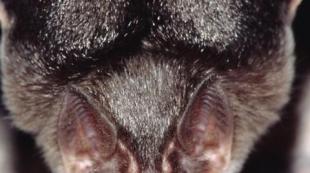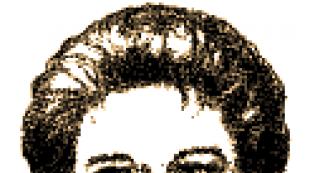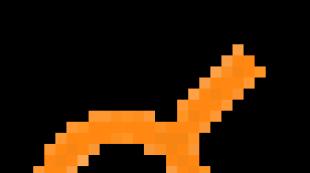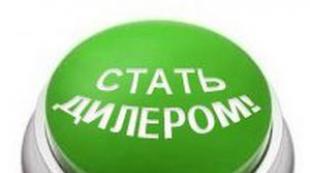Epic hero Volga Svyatoslavovich. Biography and plot
At the hour of his birth, the earth trembled and the blue sea was agitated; the animals all fled: deer and tours hid in the forest thicket, foxes and hares climbed into their holes, wolves, bears huddled in spruce forests, birds climbed high into the sky, fish went into the depths of the sea: everyone felt that a thunderstorm had come: a mighty hero was born.
The Volga is growing by leaps and bounds; loudly, like thunder, speaks to his young mother Maria Vseslavievna such speeches:
- Empress-mother! Do not swaddle me in expensive diapers, do not put silk belts on me - swaddle me in strong damask armor, put a golden helmet on my violent head, put a heavy lead stick in my hands, weighing three hundred pounds!
The mighty Volga has grown up; his mother gave him seven years to study; he learned all sorts of sciences and tricks, but this learning seemed to him not enough. Volga left home for high mountains, dark forests, to the old wise men, and learned from them various tricks: Volga learned to turn into a clear falcon, and a gray wolf, and a bay tour with golden horns.
At the age of twelve, Volga began to gather a squad for himself: for three years good fellows came to him, they came from the south, and from the north, and from the east and west: there were seven thousand squads, all brave and strong fellows.
And Volga went with his retinue to an open field to get fame and fortune for himself.
- My brave friend! Volga says. – Wind silk ropes, put snares on damp ground, catch martens and foxes, wild animals and black sables.
The squad obeyed: they twisted ropes, set snares; Good fellows spent three days and three nights at work: only no animal is caught, as if on purpose, - the squad returned to Volga empty-handed.
Then Volga turned into a mighty lion, ran into the forests, caught every beast, fed his retinue royally, dressed a black sable in fur coats.
For the second time, Volga sends good fellows:
- My brave friend! Wind silk ropes, set snares on the branches of trees: catch geese, swans, clear falcons, small birds!
Volga's squad spent three days and three nights hunting: not a single bird got tangled in the snares; came to Volga empty-handed.
Volga turned into a bird of prey, shot up like an arrow into the sky; I caught every bird, brought it to my squad.
Volga says for the third time:
- My brave friend! Take steel hatchets, build a strong oak ship, throw silk nets into the sea, catch all kinds of fish: salmon and whitefish, and small pikes and roaches, and expensive sturgeons.
The knights spent three days and three nights at sea; We didn't even catch one small fish! They don't know how to show themselves to Volga. Volga sees that things are bad, he will have to go for prey himself. He turned into a pike fish, sank to the deep seabed, caught all kinds of fish; fed his companion with generous dishes. They live for themselves, they live, they don’t know any care, they don’t know.
One day, rumors spread around Kiev that the Indian king was going to make war on the glorious, capital city; threatens to take Kyiv, to destroy, God's churches to burn.
Volga gathered his brave squad here, went on a campaign to the Indian kingdom. They walked a day, another; Volga says to the squad:
- Remote, good fellows, we have gathered here a little, a lot of seven thousand; is there no such person among you who would turn into a bay tour and run away to the Indian kingdom, find out what Tsar Saltyk Stavrulievich is up to?
The warrior bows low to Volga, as if the grass is bent to the ground by the wind, they say:
- We have no other such person but you, Volga Svyatoslavich.
Here Volga turned into a bay tour with golden horns and ran to the Indian kingdom: he made the first jump - he left a mile away, and with the second he completely disappeared from view. Volga then turned into a bright falcon, flew to the Indian kingdom, sat down on the window of the royal chambers of white stone and heard the wife of Tsar Saltyk, Elena Azvyakovna, say to her husband:
- You, glorious king, are going to war against holy Russia, but you don’t know that a bright month has ascended to heaven, a mighty hero was born in Kyiv, your strong enemy, Volga Svyatoslavich!
Here Saltyk Stavrulievich was angry with his wife because she dissuaded him from going to Russia and praising someone else's hero; grabbed the queen and how he hit her with a swing on the stone floor!
Volga flew away from the window; turned into an ermine beast, made his way into the cellars, cellars, into the high towers of the Indian kingdom, bit the bowstrings of tight bows, broke off the iron from the knee arrows and buried it in the ground so that Saltyk had nothing to fight with. And again Volga turned into a bright falcon, soared high into the heavens, flew into an open field, where he left his brave squad. Volga sees - the squad is sleeping, resting. He woke up the good fellows:
- Get in, my brave warrior, now is not the time to sleep and get enough sleep: it's time to go to the Indian kingdom!
They approached the strong stone wall of the Indian capital city: high walls and strong, iron gates are dead-tightly locked, with copper bolts. Day and night, royal guards walk around the city. On the gate there is a carved lattice of wise work: only an ant can get through the lattice patterns: they are so thin and narrow.
Volga's squad spun:
- In vain we will lay down our heads here: how to get through these intricate walls to the capital Indian city!
Volga hears the complaint of the daring good fellows, says:
- This grief can be helped!
Volga turned into an ant and turned his squad into goosebumps, and they made their way beyond the city walls to the glorious Indian kingdom. Here they again turned into good fellows on horseback, armed with daggers and spears. Volga gave them the following order:
- You walk around the Indian kingdom, cut down all the villainous warriors; leave only seven thousand red girls alive!
And Volga himself went to the royal chambers to the Indian king. Tsar Saltyk Stavrulievich is sitting in his strong palace: locked iron doors heavy damask locks. Volga pushed the door with his foot, and strong bolts flew off: there was no need to open it. Volga saw Tsar Saltyk and said:
- You are not beaten, they are not executed! - Grabbed him by the white hands, hit the brick floor and put him in place.
And Volga himself became the tsar-sovereign in the Indian kingdom, married the beautiful queen Elena Azvyakovna, and his squad married darling red girls.
Volga generously rewarded his good fellows: he gave silver, gold; to each he gave a herd of horses worth a hundred thousand.
The brave warrior glorifies her daring prince, and throughout Russia there is a loud praise for the exploits of the glorious hero Volga Svyatoslavich and his daring, good fellows.
Volga Svyatoslavich (also Volkh Vseslavievich) is a hero, a character in Russian epics. The main distinguishing feature of Volga is cunning, the ability to shapeshift and the ability to understand the language of birds and animals.
Ryabushkin, Andrei Petrovich. Volga Vseslavievich. 1895.
Volga (Volkh) is one of the most ancient characters in Russian folklore. It has a lot of archaic, magical. Miller gives Volga a mythical meaning: in his opinion, it was originally an image of a thundercloud, as indicated by the shaking in nature described in the epic at the birth of Volga (thunder) and werewolf, that is, a constant and rapid change in the shape of a cloud under the influence of air movement. They suspect the connection of his name with the word "sorcerer", suggesting that only then it turned from a common noun into a proper name. On the basis of the surviving data on Volga, researchers of the mythology of the ancient Slavs even reconstruct (quite controversially) the ancient Slavic god of hunting, Volkh.
The bylina about the campaign was preserved in 11 records.
The birth of a heroBoris Olshansky. Volkhv Vseslavovich
Volga is the son of a snake and Princess Marfa Vseslavievna, who miraculously conceived him by accidentally stepping on a snake. The trembling of the earth and the terrible fear of all living creatures at the moment when Volga saw the light point to him as the personification of some elemental force. Volga grows by leaps and bounds, and soon becomes a powerful hero, possessing not only the art of fighting enemies, but also reading books and turning into different animals.
This story preserves the oldest totemic ideas about animals as human ancestors and about the possibility of the birth of a great hunter and sorcerer directly from an animal father.
Ivan Bilibin. "Volga with his team."
Expedition to the Indian Kingdom
Boris Olshansky. Campaign of the Volga
The central moment of the epics about the Volga is his campaign in a distant kingdom: Indian, the lands of the Turkish-Saltan, etc. He is recruiting a squad. To provide her with everything she needs, he turns into a wolf and a falcon, feeding her with hunting. The success of the campaign is due to the wisdom of Volga. With an ermine, he spoils the bowstrings of enemies' bows, with a wolf he bites the throats of horses, and so on.
Illustration for the epic "Volga": Volga turned into a fish-pike. 1904
In order for the squad to overcome the impregnable walls, he turns them into ants, and within the walls of the city he returns his human form. The winner marries the wife of the murdered king, and his warriors marry local girls left alive. He himself becomes king.
Illustration for the epic "Volga": Tsar Saltyk Stavrulievich and Tsarina Azvyakovna
Meeting with Mikula Selyaninovich
Ivan Bilibin.Bogatyr Volga and Mikula Selaninovits.
Meeting with a wonderful plowman who surpassed Volga in "cunning-wisdom". During the collection of taxes from the cities of Gurchevets and Orekhovets, Volga met the plowman Mikula Selyaninovich, who complained about the tax collectors in the city of Gurchevets, who were tearing a simple peasant at an exorbitant price, and punished them for their greed with a whip. Seeing a mighty hero in Mikul, Volga called him with him to the squad to collect taxes. Having driven off, Mikula remembered that he had forgotten the plow in the ground. Twice Volga sent combatants to pull out that plow, on the third time he himself and his squad did not overcome the whole. Mikula pulled out that plow with one hand. Arriving in the cities of Gurchevets and Orekhovets, they fought and collected taxes.
Volga Svyatoslavich and Prince Oleg
At one time it was customary to identify Volga Svyatoslavich with prophetic prince Oleg, who reigned after Rurik. The identification is based on the similarity of names, the correspondence of Oleg's epithet "Prophetic" (indicating his cunning and wisdom) with the qualities of Volga. In addition, Oleg's campaign against Tsaregrad was correlated with Volga's campaign in India, and in the birth of Volga from a snake, they found a semblance of Oleg's death from a snake. Vladimir Propp dismisses this attempt to find a historical prototype of the Volga as completely fantastic.
Ivan Bilibin.
According to Miller, memories of prophetic Oleg and Vseslav of Polotsk. According to Wollner, there were originally two separate songs about Volga and Volkh, which were then mixed with each other. Veselovsky brings together one of the epics about Volga with "The Walk of Charles", and in this way he compares Volga himself with Charlemagne. Volga also bears the name of Buslaevich, which, according to Miller, along with the news of his scholarship, was transferred to him from Vasily Buslaevich of Novgorod.
Konstantin Vasiliev.Volga
Some researchers identify Volga Svyatoslavich and Prince Oleg Svyatoslavich of Drevlyansk, brother of Vladimir and Yaropolk Svyatoslavovich.
And the ability to understand the language of birds, fish and animals.
The identification of Volga and Volkh is not generally accepted in folklore. Perhaps these are different faces, which in the late period of the existence of the epic began to merge in the minds of storytellers due to the similarity of names.
Encyclopedic YouTube
1 / 3
✪ Who is Volga Svyatoslavich? (MYTH Show)
✪ Volkh Vseslavevich
✪ "Volga and Mikula Selyaninovich"
Subtitles
Origin of the image
There are many archaic features in the epic figure of Volkh Vseslavievich, therefore he is considered one of the oldest characters in Russian folklore. VF Miller believed that initially it was an image of a thundercloud, as indicated by the shaking in nature described in the epic at the birth of Volga (thunder) and werewolf, that is, a constant and quick change in the shape of a cloud under the influence of air movement.
The origin of the name of this hero from the word " sorcerer" (by turning a common noun into a proper name) was assumed.
On the basis of epic information about Volga, modern researchers of the mythology of the ancient Slavs even reconstruct (quite controversially) the ancient Slavic god Volkh.
Supporters of the "historical school" in the study of epics believe that the prototype of the epic Volga was Prince Vseslav Polotsky.
Main plots
1. The birth of a hero
Volga is the son of a snake and Princess Marfa Vseslavievna, who miraculously conceived him by accidentally stepping on a snake. Then he was very angry, but when he saw Marfa Vseslavyevna, he fell in love. The shudder of the earth and the terrible fear of all living creatures at the moment when Volga saw the light point to him as the personification of some elemental force. Volga grows by leaps and bounds, and soon becomes a powerful hero, possessing not only the art of fighting enemies, but also reading books and turning into different animals.
This story preserves the most ancient ideas about animals as human ancestors and about the possibility of the birth of a great hunter and sorcerer directly from an animal father.
2. Hike to the Indian kingdom
The central moment of the epics about the Volga is his campaign in a distant kingdom: Indian, the lands of the Turkish Sultan Suleiman, etc. He is recruiting a squad. To supply her with everything she needs, he turns to the wolf and the falcon, feeding her with hunting. The success of the campaign is due to the wisdom of Volga. With an ermine, he spoils the bowstrings of enemies' bows, with a wolf he bites the throats of horses, and so on. So that the squad could overcome the impregnable walls, he turns them into ants, and within the walls of the city he returns to his human form. The winner marries the wife of the murdered king, and gives his soldiers the local girls left alive. He himself becomes king.
The bylina about the campaign was preserved in 11 records.
3. Meeting with Mikula Selyaninovich
Meeting with a wonderful plowman who surpassed Volga in "cunning-wisdom". During the collection of taxes from the cities of Gurchevets and Orekhovets, Volga met the plowman Mikula Selyaninovich. Mikula complained about the tax collectors of the city of Gurchevets, who were fighting a simple man at an exorbitant price, and told how he punished them for their greed with a whip. Seeing a mighty hero in Mikul, Volga called him with him to the squad to collect taxes. Having driven off, Mikula remembered that he had forgotten the plow in the ground. Twice Volga sent combatants to pull out that plow, on the third time he himself and his squad did not overcome the whole. Mikula pulled out that plow with one hand. Arriving in the cities of Gurchevets and Orekhovets, they fought and collected taxes.
Volga Svyatoslavich and Prince Oleg
At one time, it was customary to identify Volga Svyatoslavich with the Prophetic Prince Oleg, who reigned after Rurik. The identification is based on the similarity of names, the correspondence of Oleg's epithet "Prophetic" (indicating his cunning and wisdom) with the qualities of Volga. In addition, Oleg's campaign against Tsaregrad was correlated with Volga's campaign in
Volga Svyatoslavich (also Volkh Vseslavevich) hero werewolf (sorcerer) of Russia.
As I have already noted in my two previous works related to the heroes of Russia. And this is Alyosha Popovich - http://aazubov.blogspot.ru/2015/01/blog-post_27.html and Dobrynya Nikitich -http://aazubov.blogspot.ru/2015/01/blog-post_28.html that in the Russian land, outstanding personalities were called heroes not only for their outstanding physical strength, but also for their skills. So that's why I said all this, in this work I want to talk about perhaps the most little-known hero, Prince Volga Svyatoslavovich. This hero was not distinguished by unsupernatural strength either by deceit or tact, but he was known in the memory of the people as a great sorcerer and master of poisons. Volga also knew the language of trees and animals and skillfully ruled his principality, and then the Turkish Khanate.
According to legend, Volga was born in the capital city, at the behest of Perun himself. In which city the hero was born, it is not indicated, however, his miraculous conception is described in detail: His mother Martha Vseslavilna for a long time went to pray in the godswood, where she prayed for a son at the idol of Perun. And in Eventually the thunderer had mercy and sent his beloved servant Serpent to help Martha. While walking in the garden, Martha accidentally stepped on the Serpent and became pregnant that same night. In some epics, Volga is called the son of Perun. Plus, the events that took place during the birth of the Bogatyr are added to the piggy bank to this theory. The thunder shook the earth itself and was heard even in the kingdom of the Turkish-saltana (India, possibly Byzantium). So Volga was born.
No sooner had Volga turned a year old than the kingdom of the Turkish-Saltan arrived, the messenger demanded that Volga be handed over to the Turkish Khan. Astrologers predicted the death of the mighty Tsar Turets at the hands of Volga on the day of his birth. And the term for the extradition of the baby, the ambassador set exactly one day. Marfa and her husband Svyatoslav said goodbye to their son all day and then handed him over to the ambassador. The ambassador of the Turkish-saltan decided not to delay any longer and, in order not to dirty his hands, let a viper near the baby, which, together with the messenger, little Volga immediately strangled. ATurets - to the Saltan they wrote that the messenger, together with the baby, threw himself off the cliff. All this calmed the Turkish-saltan for a while.
During this time, while the Turets was sure of the death of Volga, he got stronger and turned into a valiant young man. And when he turned sixteen, he gathered a squad and, while collecting dues from the cities of Gurchevets and Orekhovets, met the plowman Mikula Selyaninovich. Who turned out to be not only a plowman, but also a sorcerer who taught the young prince the subtleties of poisons and reverse magic. And when the prince himself was able to personally take on the guise of various beasts and began to understand drugs, he began to prepare an army for a campaign against the Turkish kingdom.

But for a war with such a powerful state as the Turkish Volga, it was necessary to strengthen itself within the state. And in this he was helped by seductive potions and poisons. After the prince was able to raise a fortune for the campaign, he declared war on the Turkish Khan. The walls were strong, then the prince wrapped his squad in ants, and when everyone climbed through the walls, he returned them to their human form. After the capture of the kingdom, the prince himself married the wife of the murdered king and became king
the famous hero of Russian epics, the son of a snake and Princess Marfa Vseslavievna. Already his very name Volga, i.e. Magus, indicates his mythical character, although another name Volga recalls the historical Oleg. In the personality of V., mythological elements are mixed with historical ones: the very birth of V. from a mythical father, the shudder of the earth and the terrible fear of all living creatures at the moment when V. saw the light, point to him as the personification of some elemental force. This is in harmony with the fact that he is growing by leaps and bounds, that soon he becomes a mighty hero who knows not only the art of fighting enemies, but also reading books and turning into different animals. On the contrary, that part of the epics about V., where he is the winner of the distant Indian kingdom or the land of the Turets-Saltan, strongly resembles Oleg's campaign in Tsargrad. The main epic about V. consists of these two parts; but he still appears in other epics dedicated to other heroes, but a lot of space is especially given to the description of his meeting with Mikula Selyaninovich (see). For different views on the origin of V. - see the article Bogatyri
- - Sinyavsky Vadim Svyatoslavovich, sports radio commentator, journalist. He was brought up by his stepmother, M.P. Tretyakova, niece of P.M. Tretyakov...
Moscow (encyclopedia)
- - see in the article Bryachislav ...
Biographical Dictionary
- - see the article Bogatyrs ...
Biographical Dictionary
- - You land, my land, dear, Eternal plowman and howl, Like Volga under a willow, You bowed your head ...
- - Not Volga the hero is born, Hope is born - a young singer, A daring curly head ...
Proper name in Russian poetry of the XX century: a dictionary of personal names
- - Prince Novgorod-Seversky, from the Olgovich generation, son of Svyatoslav Olgovich, grandson of Prince. Oleg Svyatoslavich of Chernigov, great-grandson of Yaroslav the Wise...
- - Doctor of Philology Sciences. Presumably the pseudonym of R. Arbitman. Lives in Saratov. K. is the author of the "monograph" "The History of Soviet Science Fiction" - following the traditions of "The Newest Plutarch" by D. Andreev, "...
- - Department Director North America Ministry of Foreign Affairs of the Russian Federation since 2003; born in 1956; graduated from the Moscow state institute international relations in 1978....
Big biographical encyclopedia
- - Prince of Drevlyansk, son of Grand Duke Svyatoslav Igorevich ...
Big biographical encyclopedia
- - zoologist; genus. 1854; completed a course at Moscow University; accompanied Grand Duke Alexei Alexandrovich on a trip across the Arctic Ocean and to Novaya Zemlya...
Big biographical encyclopedia
- - Raevsky - zoologist, born in 1854, completed a course at Moscow University; accompanied Grand Duke Alexei Alexandrovich on a trip across the Arctic Ocean and to Novaya Zemlya...
Biographical Dictionary
- - see in the article Rostislav ...
Biographical Dictionary
- - Soviet journalist, radio commentator, founder of the Soviet school of sports radio reporting. Member of the CPSU since 1945. In 1924‒72 he worked at the All-Union Radio...
Great Soviet Encyclopedia
- - Russian journalist, commentator on the All-Union Radio since 1924, founder of the national school of sports reporting ...
Big encyclopedic dictionary
- - werewolf...
Synonym dictionary
- - noun, number of synonyms: 4 volkh freemen crowd gang ...
Synonym dictionary
"Volga Svyatoslavovich or Volkh Vseslavevich" in books
Chapter 15
From the book Aryan Myths of the Rus author Belov Alexander IvanovichChapter 15 about mermaids; coastlines and mountains; about seeing off mermaids; about goats and donkeys; about a heavy donkey's share; and also about the one who ate the goldfish and became pregnant; about the fiery nature of the devil and
Volkh (Volga, Volkh Vseslavievich)
From the book Secrets of the Slavic Gods [The World of the Ancient Slavs. Magical rites and rituals. Slavic mythology. Christian holidays and ceremonies] author Kapitsa Fedor SergeevichVolkh (Volga, Volkh Vseslavievich) The hero of Russian epics. The image of Volkh combined ancient ideas about animals and the traditional qualities of an epic character (hero), who also has the signs of a werewolf. Volkh appeared from the union of the young princess Marfa Vseslavievna and
V. Bylina "Volkh Vseslavevich"
From the book Great War Russia [Why the Russian people are invincible] author Kozhinov Vadim ValeryanovichV. Epic "Volkh Vseslavievich" The second of the epics published in this book - "Volkh Vseslavievich" - was recorded about 250 years (that is, a quarter of a millennium!) Back, in 1740-1760, for the famous cultural figure Porfiry Akinfovich Demidov (1710-1786 ), one of the representatives
Volkh Vseslavevich
author author unknownVolkh Vseslavievich In the garden, in the green garden, The young princess Marfa Vseslavyevna walked and walked, She jumped from a stone to a fierce snake - A fierce snake wraps itself Around the shoe is green morocco, Near a silk chick, With a trunk beats on a white quilt. And at that time the princess suffered diarrhea, And diarrhea
Volga and Mikula
From the book of Bylina. historical songs. ballads author author unknownVolga and Mikula When the red sun shone On a clear sky, Then young Volga was born, Young Volga Svyatoslavovich.
Volga Ipatava
From the author's bookVolkh
From the book Encyclopedia of Slavic Culture, Writing and Mythology author Kononenko Alexey AnatolievichVolkh Volkh Vseslavlevich, Volga, Volga Buslavlevich, Volga Svyatoslavich - an epic character. In one of the Russian epics, passers-by warn Ilya of Muromets: ... Just don’t go out to fight with Svyatogor the hero: He and the earth bears on itself through force; Don't fight with the family
Fiery Magus
author Kryuchkova Olga EvgenievnaVolkh (Volga)
From the book Slavic gods, spirits, heroes of epics author Kryuchkova Olga EvgenievnaVolga Svyatoslavovich
From the book Slavic gods, spirits, heroes of epics author Kryuchkova Olga EvgenievnaFiery Magus
author Kryuchkova Olga EvgenievnaFiery Volkh Fiery Volkh - in mythology, the god of war and courage, a werewolf warrior. According to some sources, also the husband of the goddess Leli. It is also said that once, the son of Dy and the Earth, Indrik, was walking in the mountains. And he met his mother, Cheese Earth, in the mountains of Indrik. And then turned around
Volkh (Volga)
From the book Slavic gods, spirits, heroes of epics. Illustrated Encyclopedia author Kryuchkova Olga EvgenievnaVolkh (Volga) Volkh (Volga) - in the mythology of the Slavs, a character who had the ability to transform into birds and animals, as well as into inanimate
Volga Svyatoslavovich
From the book Slavic gods, spirits, heroes of epics. Illustrated Encyclopedia author Kryuchkova Olga EvgenievnaVolga Svyatoslavovich Volga Svyatoslavovich is a character of epics, a hero. He had the ability to turn into various animals and understand the language of animals and birds. Volga was born from Princess Marfa Vseslavievna and a snake. Princess Marfa conceived Volga in a mystical way, when
***Volkh Vseslavevich***
From the book Fantastic Bestiary the author Bulychev Kir*** Volkh Vseslavevich *** In my opinion, the most inventive and capable werewolf in the history of the Earth can be considered the Russian hero and fabulous commander Volkh Vseslavevich. Perhaps this is the only character in our bestiary who is called by name - patronymic,
Volga and Mikula Selyaninovich
From the book Literature Grade 6. Textbook-reader for schools with in-depth study of literature. Part 1 author Team of authorsVolga and Mikula Selyaninovich When the red sun rose And then in the clear sky, Young Volga Vseslavevich was born here. Volga began to grow and swear, Volga studied and all sorts of wisdom: As a gray wolf to prowl in dark forests, As a pike-fish and dive into blue









